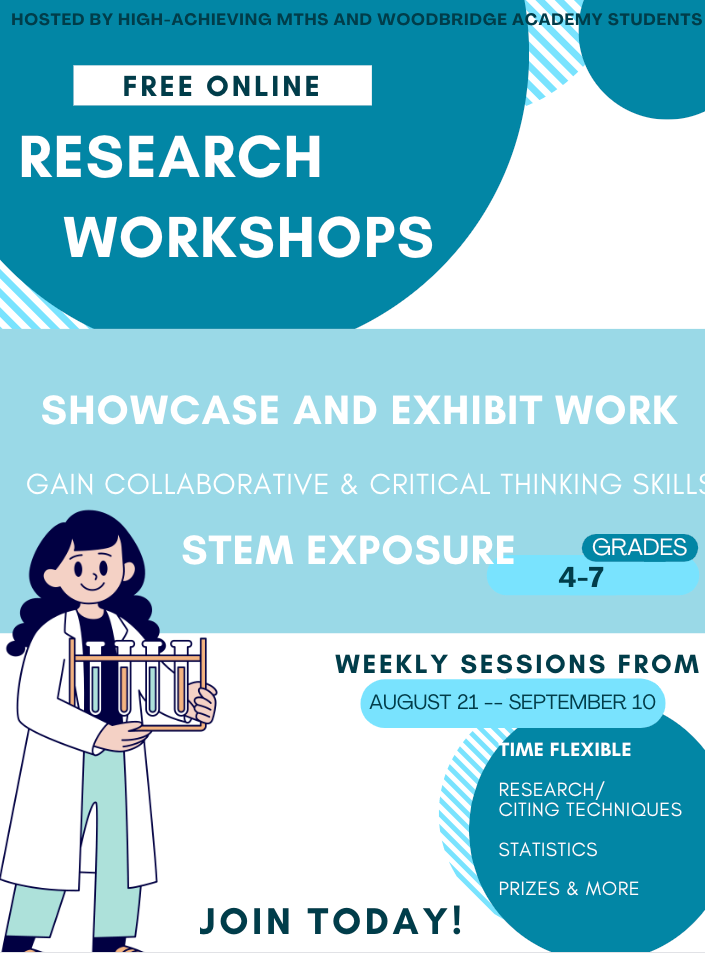The Problem
The problem our project aims to fix is the limited emphasis placed on STEM/research based activities and projects for younger students in grades 4-7.
The problem our project aims to fix is the limited emphasis placed on STEM/research based activities and projects for younger students in grades 4-7.
Our project targets to holding annual research workshops to raise awareness in various topics through research & posing critical thinking skills.
The goal of this project was to bridge the gaps of STEM outreach in our community. Specifically, this project targeted elementary schoolers and rising middle schoolers on expanding their research skills. We approached this with our once a week program, "Disease Awareness Research Workshop". Every Saturday, kids joined for an hour long session to learn about research techniques and putting together a project by themselves or with partners. At first, we had difficulty with teaching and explaining concepts through a virtual setting. We overcame this by holding extra sessions and Q&A sessions to make sure that the children were able to understand what we were trying to say. At the end of the session, we managed to hold an exhibition for parents and friends to watch their student present their independent research work and findings. We also voted for the top 3 projects on the following qualities: Level of Information, Artistic Ability, and Ability to spread awareness. From here, we closed out our program and awarded these winners with gift cards.
Through this project, we were able to work out our differences and learn the basis and structure to any project- teamwork. Although we all had different ideas and approaches to advertising and teaching, we combined our differences into a common idea. This allowed for everyone's thoughts to be incorporated into the project. At times, we had to stick on to one idea due to the limited resources and time we had to complete a potion of the project. Another important lesson we learned was the importance of sharing our knowledge and accepting other's knowledge. This project was not only a learning experience for the students, but also for us. From the different creative ideas and information the students collected, we were also able to learn a lot about different diseases and maintaining a virtual setting. One of the most engaging activities where all of us, including the students, learned about disease awareness was during the exhibition.
In the future, we will need to come up with a more organized schedule and virtual set up for a more engaging program. This includes rehearsing more on our end and having a particular timing which remains constant. Additionally, we will need to work on more participative activities instead of a lesson based structure. For example, we can allow students to collaborate and share different ideas in breakout rooms.
We enjoyed the lesson time of the program. This was because we all shared our knowledge to the students which allowed them to work and propose their own ideas into their projects.
Tip #1: Rehearse about 10-30 minutes before the session with your partners on the slideshows/material being taught. This will allow for more confidence in talking and a chance for less mistakes. Tip #2: Stay 10-30 minutes after the conclusion of each session to conclude the session and reflect with your group mates. This allows for everyone to know what not to do during future sessions and also provides constructive criticism to your peers.
